Oscar Vault Monday – The Graduate, 1967 (dir. Mike Nichols)
There is an awful lot that has been and can be written about this film. I touched briefly on 1967’s impact on American cinema a few years back, so I’m not really going to delve into that aspect of the film, though I will point out a few things that made it a game-changer. I remember when I first saw this film, I wasn’t all that impressed to be honest. But the more I watch it the more its genius reveals itself to me. I saw it on the big screen at the Castro last spring and I am so glad that I did. A few weeks ago some kind stranger anonymously bought it for me from my Amazon wishlist, so I decided it was time for another revisit. The result is going to be this rather epic look at what I now realize is one of the most exquisitely directed films of all time. It was nominated for seven Academy Awards, though it only won one: Best Cinematography, Best Adapted Screenplay, Best Supporting Actress Katharine Ross, Best Actress Anne Bancroft, Best Actor Dustin Hoffman, Best Director Mike Nichols (won) and Best Picture. The other films up for Best Picture that year were Bonnie and Clyde, Doctor Doolittle, Guess Who’s Coming to Dinner and winner In The Heat of the Night.
1967 is often discussed as the year New Hollywood truly began and The Graduate is one of the finest examples of what that meant. It’s a mixture of a new kind of story, a new way of storytelling, 70 years of artistry perfected and then challenged to do more and a new style of acting. I know I won’t be able to discuss everything I want to say about this film, but I am sure going to try.
This was Dustin Hoffman’s second film and his first starring lead. He received a Best Actor nomination (he lost to Rod Steiger in In The Heat of the Night) and would go on to receive a total of seven nominations in the category, winning twice: Midnight Cowboy (1969), Lenny (1974), Kramer Vs. Kramer (1979, won), Tootsie (1982), Rain Man (1988, won) and Wag the Dog (1997). Hoffman plays Ben, a twenty-year-old college graduate who comes home and has no idea what he wants to do with his future.
When we first meet him, he’s staring off, with a dazed look while seated in a packed airplane. This daze continues as the plane lands, he makes his way through the airport and eventually to his parents’ house for a party. He’s hiding in his room, concerned about his future, but his parents want him to come down and celebrate with their friends. His parents are more concerned about his past accomplishments than this future that seems to frighten him so much.
The party scenes are mostly shot in tight two-shots, with Hoffman’s head taking up most of the frame. Ben’s claustrophobia is mirrored by Nichols’ choice of framing. The party guests, unlike Ben’s parents, are concerned with his future and ask him what he plans to do. All he can say is “I was going to go upstairs.” He has no idea what to do with his life, and neither does anyone else, so it seems.
Except, of course, one of Ben’s parents’ friends, who just has one word for Ben: plastics. There’s a great future in them. So much can be made of what this means. On the surface, the friend is telling Ben that the plastics industry is booming and he should get in on it right away. But you also have the idea that everyone is as fake and hollow as plastic and that that is all the future has in store for Ben. Everything is the same, nothing is “different,” which is the only thing Ben knows he wants for sure.
Ben’s mother begins to read excerpts from his college yearbook, while Ben tries desperately to leave the party. It is at this moment that we are introduced to Anne Bancroft’s iconic Mrs. Robinson. She’s off to the side, bored and smoking a cigarette. She sees Ben and suddenly perks up. We then cut to Ben in his room and Mrs. Robinson “accidentally” stumbling in, thinking it is the bathroom. After a brief, but telling, conversation, Mrs. Robison insists Ben drive her home in his new Alfo Romeo (a graduate present from his parents).
This leads to one of the most famous scenes in film history. Nichols and cinematographer Robert Surtees use shadows throughout this film in a way that was, up to this point, mostly only used in film noir and the like. While Mrs. Robinson shares personal details with Ben, she is in the back of the frame, while the silhouette of Ben’s head takes up the foreground.
We then get the most famous line from the film, though it is often not fully quoted. Ben accuses Mrs. Robinson of trying to seduce him, but after she laughs he adds, “aren’t you?” This little touch of insecurity speaks volumes about Ben’s personality at this point in the film. Is she? You betcha, though she claims she never had any such idea. The two are both outsiders in the world the live in. They both hate their lot in life and want something different. But as the film begins, Mrs. Robinson is in control and Ben just goes along for the ride.
We hear a lot of talk about Mrs. Robinson’s daughter Elaine, but all we see of her is a recent portrait, which is found in Elaine’s room. When we finally see it, we also get a very quick cut of a naked Mrs. Robinson reflected in the glass frame. I think it is very telling of Mrs. Robinson that she would try to seduce a twenty-year-old man (boy?) in her daughter’s room, but you don’t find out really the weight of this until a little later on in the film.
Speaking of quick cuts, Nichols also snuck a few very quick cuts of Mrs. Robinson’s breasts into the film. When you watch it, it happens so quickly that you aren’t actually sure what you saw, though you’re pretty sure you saw boobs. With the magic that is “pause,” you can now see, very clearly, that yes, indeed, those are boobs. I’m told many a print of this film was “manually” edited by unscrupulous projectionists over the years and so a lot of the prints circulating have less Mrs. Robinson boobs than they ought to. This is such a brave thing of both Bancroft and Nichols to do, even if in the final cut the edits flash by so quickly you don’t actually see the boobs (or at least, not long enough to full register them as such). Such a clever way to get past the censors, but also such a groundbreaking “fuck you!” to them as well.
After an awkward encounter with Mr. Robinson, who tells Ben he ought to “sew some wild oats,” Ben goes home and the next we see of him, it is his 21st birthday. His parents have bought him a diving suit and want to show him off yet again to his parents. Ben doesn’t want to come out and his father – played by the incomparable William Daniels – says, “you’re disappointing them!,” to which Ben replies, “Dad, can you listen?” This is his relationship with his parents in a nutshell. They never listen, truly listen, to what he is trying to say to them about his life, his future, his worries. All they are concerned about are his outward appearance and impressing their friends with their son’s accomplishments.
Ben finally decides to take Mrs. Robinson up on her offer of being, “available,” to him and they arrange to meet at a nearby hotel. While he waits for her, he has an awkward and hilarious encounter with a clerk, played by co-screenwriter of the film Buck Henry. I love the framing choices here, with the desk taking up more of the frame than either of the actors’ heads. This is definitely something that would be uncommon in Old Hollywood, where the actors were the product and showcasing them was the priority.
Nichols uses a reflection again, as Mrs. Robinson arrives for her tryst with Ben. The camera then does this amazing swoop up from the reflection to the faces of the actors. Little things like this remind you that you are watching a film and that everything you are shown is a cognizant choice of the director.
I love the shot when Ben heads to the hotel room. He is so tiny in the distance and the door of the room so large. Ben is not in control of his life. Ben ha no idea what he is doing. All he knows is that it is something different, and at this point that is enough for him.
We then discover that this is Ben’s first time with a woman, and Mrs. Robinson does her best to make him feel comfortable. She’s a wonderful mixture of mother and vixen and Ben is just as confused and intrigued as you’d expect him to be.
Just as Ben decides to leave, Mrs. Robinson questions his manhood, which, of course, works wonders on getting him into bed. But instead of showing his face when he makes this huge life decision, Nichols presents us with another silhouette of Ben. What is going on in his eyes? We don’t know. All we know is what we hear in his voice, despite being able to see him. It’s a brave and brilliant choice.
There’s a really great montage of Ben in his pool and in bed with Mrs. Robinson that I can’t really do justice in a post like this, but I will say it is a marvelous piece of editing. We then hear the two of them having a conversation about how they have no conversations while they’re in bed. This happens in an almost completely black shot. If this had been an Old Hollywood film, we would have seen the two them drenched in romantic moonlight or something. Instead we get a realistic shot of blackness.
Eventually, Mrs. Robinson switches on the light and the two have a heartbreaking conversation, although Ben is mostly unaware of its weight. He wants to talk about something, anything. He says what about art? She doesn’t want to talk about that. Eventually they get on the topic of why she married Mr. Robinson. She confesses that when she was in college she and Mr. Robinson had sex in his car and she became pregnant with Elaine and that was that. He insists and knowing what he major was, which she reluctantly admits was art. He replies, “but you didn’t. . .you must have lost interest in it over the years.” She says, ” I must have.” Ben misses the entire point, but we the audience get a glimpse into the private heartbreak of Mrs. Robinson and the future that she lost because of pregnancy. If you do that math, her story probably takes place in the late-30s or early-40s, a time when birth control was still a taboo in many circles and not an option in others. This is pre-women’s lib. It’s ironic then, later, the way Mrs. Robinson treats her daughter, but I’ll get to that in a bit.
I had to include this shot. Ben and Mrs. Robinson fight because he realizes that she thinks he’s not good enough for her daughter. Ben is stuck, though, because his parents insist that he take Elaine out.
Mrs. Robinson’s face when Ben comes to pick up her daughter says more than any dialogue ever could. Anne Bancroft received third of five Best Actress nominations for this performance, though she lost to Katharine Hepburn in Guess Who’s Coming To Dinner. Bancroft’s other nominations were for The Miracle Worker (1962, won), The Pumpkin Eater (1964), The Turning Point (1977) and Agnes of God (1985).
Ben takes Elaine on the worst first date of all time. This is another shocking, game-changing scene, in that they are clearly at a strip club (or burlesque), but unlike, say Gypsy, the dancer is very, very close to naked and she most definitely uses her, um, assets. Again, Nichols denies the viewer the chance to see his actor’s face, as Katharine Ross stands, humiliated between Ben and the dancer.
Eventually, we do see her and without a word, Katharine Ross destroys you as a viewer and Ben as a person, because he’s really not a bad guy and he didn’t mean to hurt her as deeply as he clearly just did. Ross was nominated for Best Supporting Actress, though she lost to Estelle Parsons in Bonnie and Clyde.
After they patch things up, they go on what is one of the best first dates ever, sharing their mutual confusion over adulthood. Ben says, “It’s like I was playing some kind of game, but the rules don’t make any sense to me. They’re being made up by all the wrong people. I mean no one makes them up. They seem to make themselves up,” while the two share burgers in his car. Earlier, Ben found out that, “Old Elaine Robinson got started in a car,” and now he here is with her, in a car, eating burgers.
One of the very few scenes we see with both Mrs. Robinson and Elaine in the same frame comes after Mrs. Robinson threatens to tell Elaine everything so Ben goes and tells her first. Elaine is in focus in the foreground, Mrs. Robinson blurry in the background. Ben tries to tell her that the women he earlier confessed to having an affair was. . .but before he can spit it out, Elaine turns around and sees her mother and understands everything. It’s an utterly heartbreaking scene.
We then get a scene that is framed just like the initial seduction scene, with Mrs. Robinson in the background and Ben’s head int he foreground. But this time, his head is not hidden in shadows and Mrs. Robinson is reduced in size and practically swallowed up by hear large black coat. Their roles have reversed, as Ben is now in control of his life and Mrs. Robinson is helpless.
Elaine leaves, returning to college in Berkeley and Ben decides he’s going to marry her. This revelation to his parents is another one of the film’s scenes that balance humor and psychosis perfectly. I feel I must point out, however, that the shot of Ben driving over the bridge in the transition scene has him going towards San Francisco and not Berkeley. Whoops.
A lot of the scenes that are supposedly the Berkeley campus are actually U.S.C., but several of the shots of Berkeley proper really are Berkeley. For example, the above scene takes place in a cafe that is still operating and that bookstore, Moe’s, is still there. I spent a lot of my hard-earned dough buying used books there when I was an undergraduate at Cal, let me tell you.
Ben follows Elaine all over Berkeley and eventually to the zoo, where she is meeting with her tall, blond beau, whom she meets at the monkey house. This scene is delightfully awkward and ends with Ben all alone in front of the monkeys with a “do not tease” sign prominently showing.
The boarding house where Ben finds himself is run by Norman Fell, who continually says, “I want you out!” but never actually kicks him out. At one point Elaine screams because she accused Ben of raping her mother and for some reason finds his explanation – the seduction – more abhorrent than the lie her mother told her. This ruckus causes the other tenants to gather and one – played by Richard Dreyfuss in his debut – offers to call the police. Obviously, that does not happen.
Elaine comes back later that night to apologize and the two share a very tender scene, where Ben – half asleep and still yawning – asks her to marry him. Again, we get shadows, where ten years earlier we would have had romantic moonlight.
Then Nichols gives us a wonderful montage of Ben and Elaine’s courtship, where he is insistent and she is equally as hesitant as she is romantic with him. Eventually, though. Mrs. Robinson has her way – telling her husband everything, which results in a wonderful confrontation scene between Ben and Mr. Robinson (Murray Hamilton).
Ben discovers that Elaine has left school and is going to marry that blond guy. He receives a not from her roommate (played by Nichols’ long-time collaborator Elaine May). We never see the contents of the note and all we get of the roommate is a shot of her walking, at first in the distance, and then to the point where she encompasses the entire frame with her well-tailored suit-dress.
Ben goes to Elaine’s fiance’s frat house to find out where the wedding is going to be, and while there also finds out just how awful a person her really is. This frat house really is in Berkeley and, in fact, I used to live around the corner from it. I used to call it “Chia frat.”
Ben finally makes it to Santa Barbara and we get this very familiar frame again, only this time it’s Elaine who is in the background, and Ben once again is a silhouette. One of the most striking things that marks this film as purely New Hollywood, is that he doesn’t make it on time. Once inside the church, Elaine has already said her vows. She is married. Ten years earlier, this scene would have taken place just before she said her vows and he would have “saved her,” before legally saying, “I do.” But that is not the case here, nor does it stop Ben from shouting for her. He doesn’t care that she’s said her vows. They don’t mean anything to him. They are an old custom, and it’s time for old customs to be broken.
He screams and screams and screams her name many times before she finally screams his name back. As she makes her way to him, Mrs. Robinson says, “It’s too late,” to which she replies, “Not for me!” Mrs. Robinson thought she could trap her daughter in much the same way that she was trapped – perhaps as revenge on her daughter stealing her future? – but she didn’t realize that marriage isn’t that trap in once was, that Elaine is of another generation and she is stronger woman, one who will break from conventions and traditions, one who is willing to try something different.
The scene where Ben and Elaine make it to the bus just in time is filled with pure joy and the addition of the entire bus staring at the strange couple highlights the risk they just took and how different they are from the rest of society.
Which brings us to the final sequence of the film. It’s silent and, as far as I can tell, it’s one continuous cut of Ben and Elaine as they ponder what they’ve just done. It’s an ambiguous ending, because you don’t know if they’re right for each other. You don’t know if they’ve made the right decision. They don’t even know that they’ve made the right decision. But that’s not really the point. The point is that they’ve tried something different and that risk is worth everything.
I can’t not mention Simon and Garfunkel, but I don’t really know what to say about their contribution to the film, so I am just going to leave you with this tribute video set to their song Mrs. Robinson.
Posted on March 4, 2013, in Oscar Vault Monday and tagged Anne Bancroft, Art Garfunkel, Buck Henry, Dustin Hoffman, Elaine May, Elizabeth Wilson, Katharine Ross, Mike Nichols, Murray Hamilton, Norman Fell, Paul Simon, Richard Dreyfuss, Robert Surtees, Simon and Garfunkel, The Graduate, William Daniels. Bookmark the permalink. 9 Comments.






































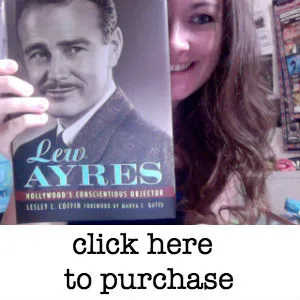

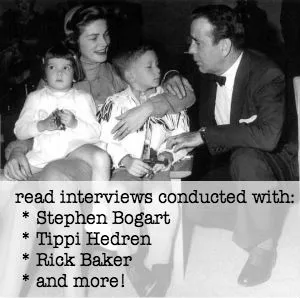
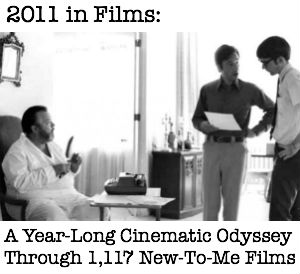
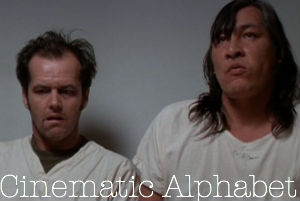

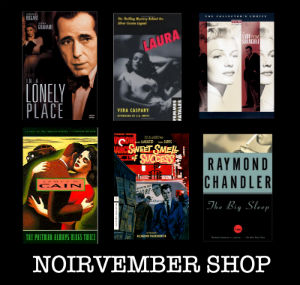








Good Job! I haven’t seen this movie in years and years and need to see it again. I knew people whose lives were changed by this movie. And yes the end is ambiguous which when I was 17 pissed me off but I understand now that the point was escaping choices that were wrong. And real life is messy. 1967 – a time of questioning everything. 🙂
Great review. This one didn’t really hit me as hard as it may have to others when I first saw it, but something tells me that a re-watch is in store for me coming up. That ending is very, very ambiguous and has it stand-above many other films of it’s nature.
Great movie. Amazing that Dustin Hoffman went from Benjamin Braddock to Ratso Rizzo as his next role.
Just some little trivial facts: both the breasts you see in the film, and the infamous leg in the poster, are not Anne Bancroft’s. For the quick breast shot, they actually got a local stripper (I heard this in the anniversary DVD commentary) and the leg you see in The Graduate poster is actually an actress named Linda Gray.
Mein Gott! How could you say absolutely *nothing* about the music in this film? The choices there were every bit as deliberate as the shot choices and framing and every bit as important.
I’ll give you just two examples. First: the film opens with “The Sound of Silence” which starts with the lyrics “Hello darkness my old friend, you’ve come to visit me again…” which fits the mood of the lead character and his uncertainty about his future–it’s reused throughout the film as a motif for Ben and how he feels about his life. Second: when he’s trying to find the church where Elaine is getting married, he rushes off without getting gas for his car and the music slows down and peters out as his car runs out of gas. Brilliant! A different choice of music or no music would have diminished those scenes.
The other musical choices are just as compelling–the film would be *much* less without the musical contribution!
Fun fact: The album cut of “Mrs. Robinson” as recorded by Simon & Garfunkel never makes an appearance in the film; however, they do a mostly instrumental version towards the end of the film (they sing one verse of the song in the middle).
Pingback: Oscar Vault Monday – The Graduate, 1967 (dir. Mike Nichols) | classicmovienight
Pingback: Oscar Vault Monday – Tootsie, 1982 (dir. Sydney Pollack) | the diary of a film history fanatic
Pingback: Female Filmmaker Friday: Valley Girl, 1983 (dir. Martha Coolidge) | the diary of a film history fanatic
Pingback: Greenbuild to Canfield Green: The Missing Link of Social Equity in Sustainability - The Handbuilt CityThe Handbuilt City
Pingback: THE GRADUATE – FilmBabie